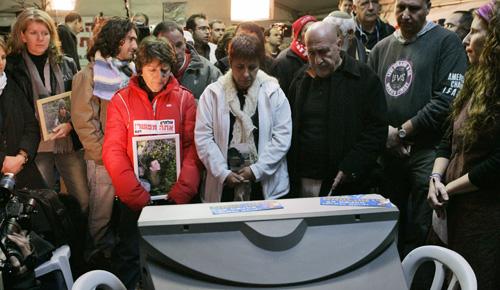Lebanon conflict of 2006 recognized as serious failure

Jan 31, 2008
Last updated on May 12, 2016 at 08:45 p.m.
JERUSALEM – The head of the panel investigating Israel’s 2006 Lebanon conflict said Wednesday that the war ended without victory and the army did not provide an effective response to Hezbollah rocket fire.
Eliyahu Winograd, the retired judge who led the investigation, told a packed auditorium in Jerusalem that investigators found “failures and shortcomings” in the country’s political and military leadership during the conflict.
Nevertheless, both Prime Minister Ehud Olmert and his defense minister at the time, Amir Peretz, acted in “what they thought at the time was Israel’s interest,” he concluded.
“The overall image of the war was a result of a mixture of flawed conduct of the political and military leadership … of flawed performance by the military, especially the ground forces, and of deficient Israeli preparedness,” Winograd said. “We found serious failings and flaws in the lack of strategic thinking and planning.”
Get The Daily Illini in your inbox!
The highly anticipated report, issued after a 16-month investigation, stopped short of holding Olmert personally responsible for the war’s failures. That was a small boost as the prime minister moves forward with peace talks with the Palestinians.
A harsh indictment could have threatened his government and his stated goal of reaching a peace agreement this year. Olmert aides acknowledged they were relieved.
Winograd said the committee had decided not to assign personal blame for the war’s shortcomings, preferring instead to search for ways to prevent similar mistakes in the future.
“It should be stressed that the fact we refrained from imposing personal responsibility does not imply that no such responsibility exists,” he said.
Winograd said a last-minute ground offensive in Lebanon failed because it did not improve Israel’s position ahead of a cease-fire and added the army was not prepared for that battle.
More than 30 Israeli soldiers were killed in that offensive launched shortly before a U.N.-brokered truce went into effect. Olmert had come under severe criticism for ordering the battle, despite his contention that the offensive improved Israel’s position before the cease-fire.
Officials in Olmert’s office said they were optimistic after a preliminary glimpse of the 629-page report. Olmert’s spokesman, Jacob Galanty, was quoted by Israel TV as saying the prime minister’s office was “breathing a sigh of relief.”





